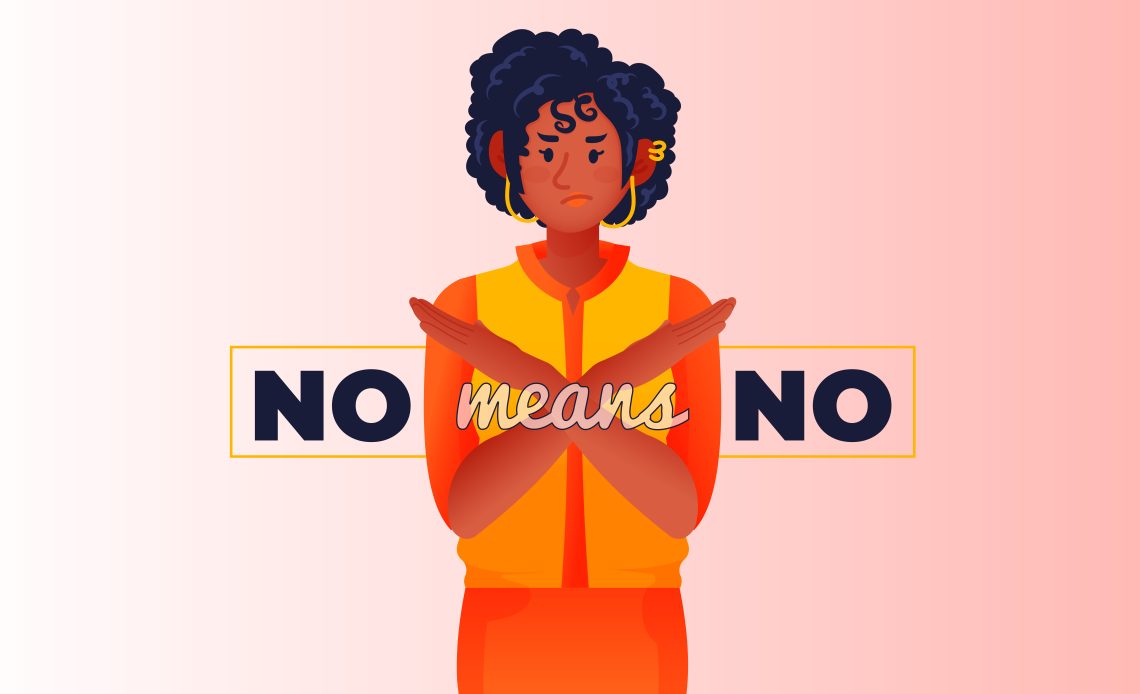
We have all been bystanders of an incident at one point, whether it is witnessing a pickpocketing or a fight. A bystander is any person who observes an incident but declines to take an active role or resist the urge to intervene or take any action to stop it. Even though they are in a position to discourage the perpetrator or interrupt the incident whether passively by calling the police or actively by stepping in, bystanders tend to quietly observe. This phenomenon is referred to by Psychologists as the “bystander effect” or “bystander apathy”. According to Psychologists, the main reason bystanders don’t intervene is because they assume that another person will take action.
Bystander apathy plagues Kenya and is breeding a culture of complacency towards sexual violence against women. Public incidences of sexual violence against women would be prevented if bystanders intervened. The Forest Road sexual assault incident is an example of how bystander apathy can allow sexual violence against women to escalate. On 7th March 2022, our attention was drawn to an alarming viral video of a woman being sexually assaulted and harassed by a group of Boda Boda operators in her car, along Forest Road in Nairobi. This incident occurred in broad daylight and despite her screams of fear, none of the people observing this incident intervened to stop the assault.
Watching this video and hearing her screams was very chilling, a feeling I believe every woman can relate to as it is a reminder of just how vulnerable we are, even in broad daylight. This incident also evoked a sense of déjà vu as I remembered the multiple incidents in 2014 of men in the Nairobi CBD stripping and sexually assaulting women who they perceived to have been “indecently” dressed and therefore “tempting” them. These assaults were also done in public and the videos were published on social media platforms. This sparked the #MyDressMyChoice movement that condemned these acts of violence against women. A common thread in these incidents, and perhaps many more that may not have been shared online, is that they occurred in public spaces, in the view of tens or hundreds of Kenyans who did not intervene.
In response to the Forest Road incident, the government began a crackdown on Boda Boda operators to bring the perpetrators to justice. There were criticisms of how the crackdown was carried out. While I agree with most of these criticisms, I disagree with the argument that the perpetrators were only a “few bad apples” and therefore the rest of the operators should not have their business suffer as a result. The phrase ‘a few bad apples’ is often used in instances of violence against women and other minorities as a way to defend and protect the reputation of the rest of the group and distance them from taking any responsibility. It is an excuse for other Boda Boda operators who might have been bystanders to avoid a sense of responsibility.
Ironically, this phrase is constantly used as a defense while the original phrase has a contradictory meaning. The original phrase traced back to as early as 1340, is “A rotten apple quickly infects its neighbour”. This means that an act of sexual violence may start with one person in a group, but if it is not stopped, but rather normalized, then the rest, who were initially innocent bystanders, not only bear responsibility for condoning this behaviour but are also likely to be corrupted. Therefore, it is not enough to consider yourself as not being part of the ‘bad apples’ if you are not taking any action against it.
Bystander apathy is an attitude that promotes our society’s complacency towards acts of violence against women and violations of their human dignity. We have to all actively fight against this instinct to look away and act like it’s not our business. Often, all it takes is for one person to step up and say ‘stop’ for the perpetrators to back away as this breaks the ‘mob mentality” that often drives these public acts of violence. In instances where intervening may seem dangerous, then you can mobilize other people to step in as a group or even go to the nearby police station or seek out traffic police to assist. Often, we assume we are too powerless to make any real difference, but if everyone took it upon themselves to always take any form of action, then there will be power in those numbers.
The government and civil society organizations can also contribute to changing this culture of bystander apathy in Kenya by carrying out sexual violence prevention programs that promote bystander intervention. One such program is the ‘Bringing in the Bystander Prevention Program’ which was developed by the Prevention Innovations Research Center. This program teaches bystanders to safely intervene in incidents including sexual assault. This can be implemented in educational institutions, workplaces including making it a mandatory program for registered members of the Boda Boda Association and community groups in Kenya. A policy can be introduced that makes it mandatory for Boda Boda riders, as a form of Continuous Professional Development, to undergo the training and obtain a certificate before they can renew their motorist driver’s license. This program will therefore promote a sense of responsibility to protect the safety and dignity of women in our society.
While there is a reasonable expectation for our public institutions and systems like the police and courts of law to bear responsibility for preventing these acts, sexual violence against women is everyone’s responsibility. We should avoid being complacent. If you see something, say or do something!


